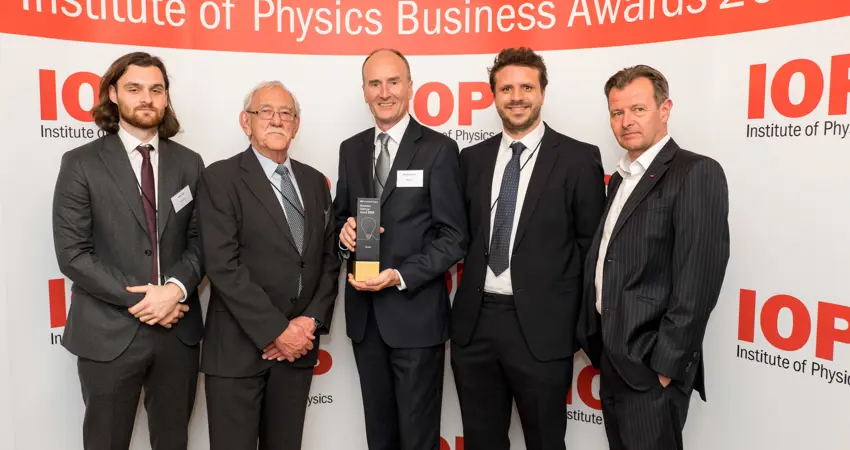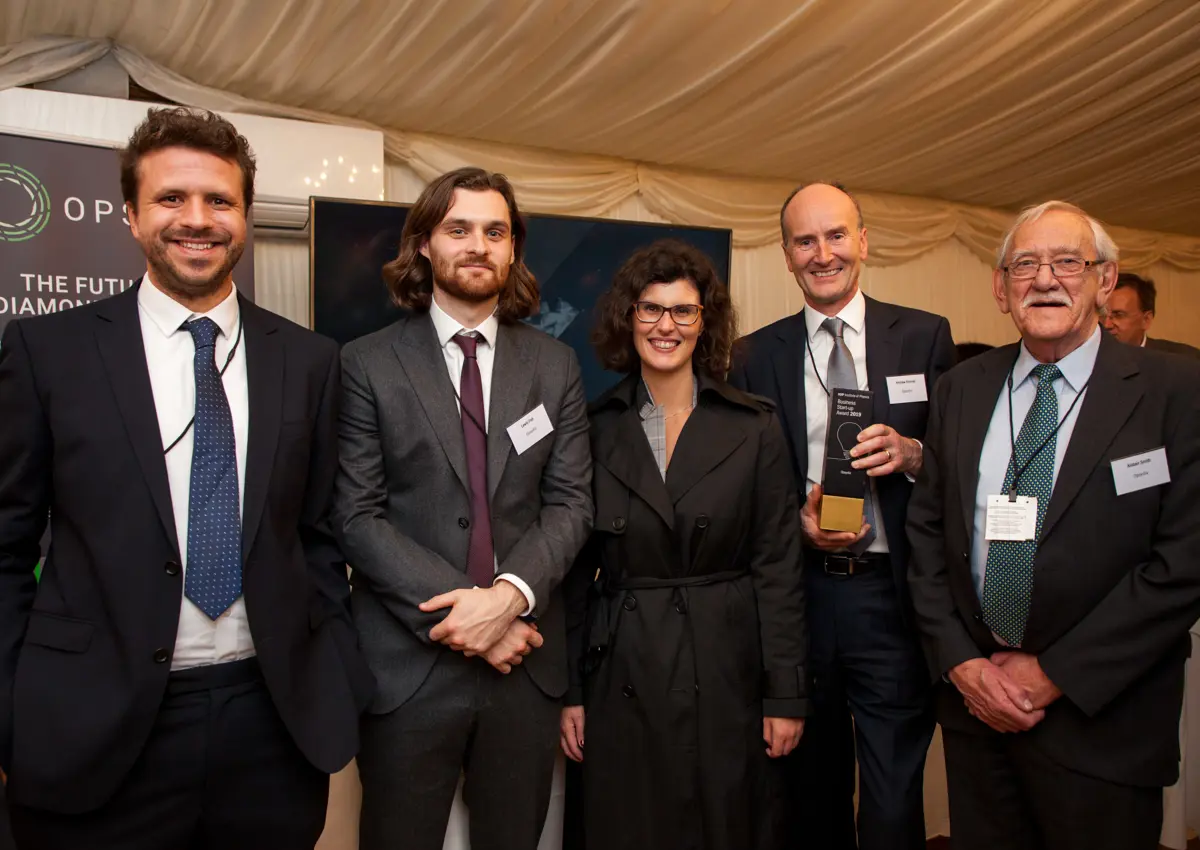04 Nov 2019
Spin out Opsydia wins Institute of Physics Business Start-up Award
Award recognises development of adaptive optics technology in laser processing which enables novel security solution for diamond gemstones

Engineering Science spinout company Opsydia, which has developed a unique laser marking technique for diamonds, has won the prestigious Institute of Physics Business Start-up award. The award recognises and celebrates young companies with a great business idea founded on a physics invention, with the potential for significant societal impact.
Opsydia was formed in 2017 by Professor Martin Booth and Dr. Patrick Salter as a spin-out from their research in the Department. The company has developed adaptive optical techniques for use in short-pulse laser processing. This innovative technology allows secure marks and serial numbers to be embedded inside diamond gemstones at the microscale, offering security and traceability without degrading gem quality.
After proving the concept within the laboratory of the University of Oxford’s Department of Engineering Science, Opsydia began work to scale the laser process for use in diamond processing facilities at high volumes. Opsydia’s technology uses laser pulses shorter than one trillionth of a second in length to create tiny lines which can be written as numbers or logos within the diamond. The marks are invisible to the human eye and the smallest ones are not detectable with a jeweller’s loupe, but can be viewed using a microscope. Marking in any facet of the stone means its secure identity can be read even when gems are mounted in jewellery.
“This award celebrates a fantastic journey"
Dr Salter went to the Houses of Parliament with some of the Opsydia team and local MP Layla Moran to collect the award. He says, “This award celebrates a fantastic journey, taking a research concept from the University lab through to a commercial product in under two years. It is a great credit to the amazing team of engineers at Opsydia, including two alumni from the Engineering Department here in Oxford.”





